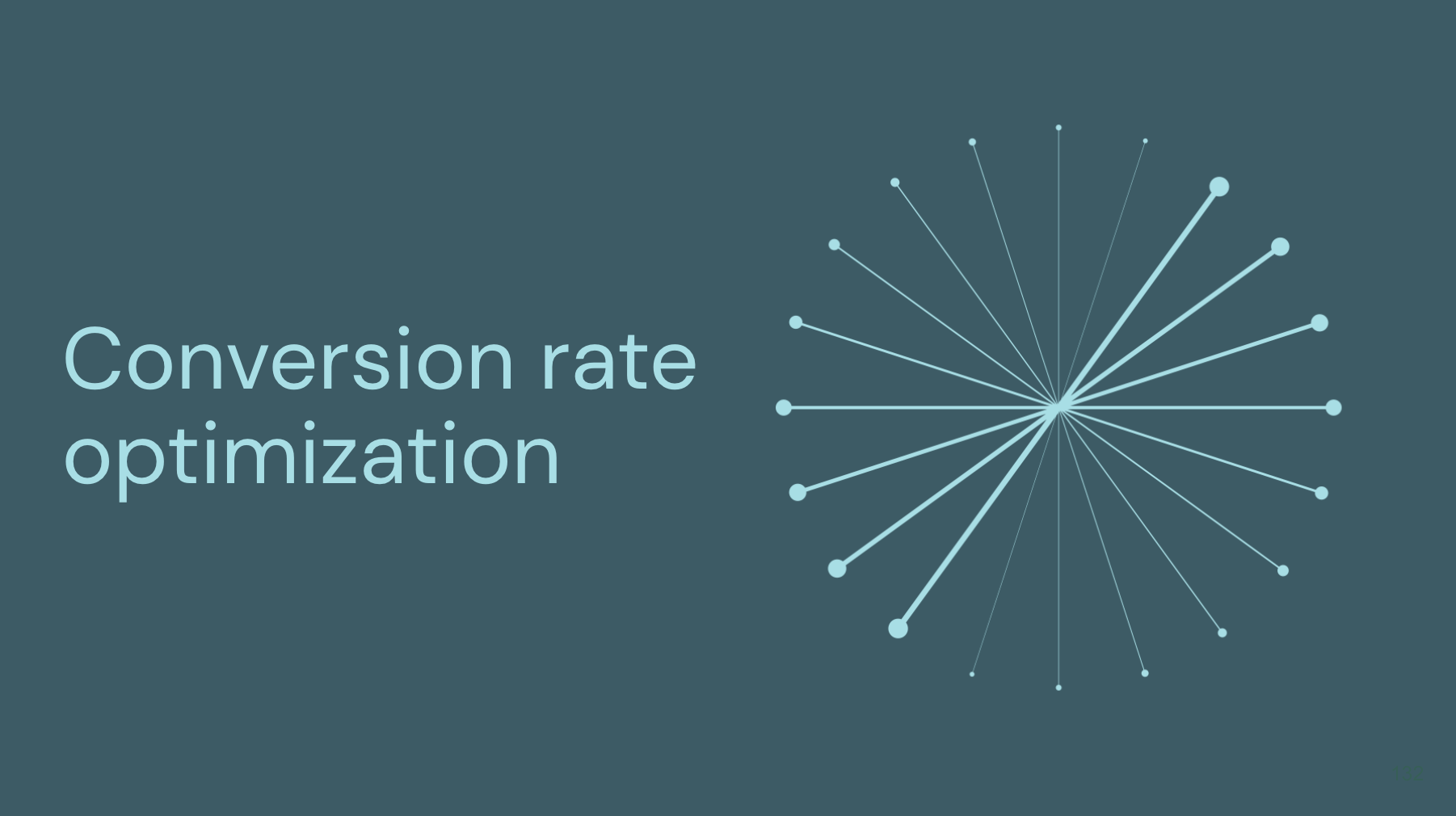Conversion Rate Optimization success factors
Six success factors in CRO

Conversion rate optimization is the process of how we can nudge to behave in a certain way and take a specific action that is defined as valuable to us. As the name suggests, CRO, focuses on improving the conversion against set KPIs by methodologically testing and evaluating the user experience on the set out platform. It is not uncommon to have multiple A/B tests that have different objectives in order to ultimately achieve the goal of increasing conversions.
Here we will go through some of the capabilities needed in order to get started with CRO, starting with the conditions brands need to meet to be successful.
The six success factors
It takes effort to implement data-driven practices but companies who do are rewarded with efficiency savings and revenue gains. It is known that brands who are leading the way of being data-driven focuses on these six factors:
- Specialist skill
- Agile teams and “fast fail” culture
- Strategic Partnership
- Connected data
- Automation and integrated tech
- Actionable measurement
When applied to CRO, the mindset of having these six factors ticked will make the process smoother and more efficient.
Having a specialist skill will help us realize how we successfully carry out, analyze, follow up and document the tests. There are plenty of potential pitfalls that can slow the testing cycle down, so it is important to have someone who will set the structure with experience and knowledge in the area.
Agile teams and “ fast fail ” culture is important when working with CRO as there will be tests that do not necessarily give the expected result. It will however, provide insights and knowledge that can be used in order to move forward towards the goal of increasing conversions. It will also give us valuable information about our audience that can be used as support for making future decisions.
There are plenty of advantages of having a strategic partnership and one of the most common reasons is to have a partner that challenges the other part and dares testing more controversial experiments that might not have been thought of before. It also gives the partner a chance to focus on the most important decisions and relieve some tasks in order to allow an agile and fast moving team. For a successful partnership this means prioritizing efforts based on impact and urgency fully aligned and anchored with core business goals.
As the name suggests (CRO), having connected data and integrated tech is the only way to understand the effects of the experiment, in order to measure the conversions. There are plenty of tools that can be used to execute the test, and they need to be integrated with the rest of your tech stack in order to track, and analyze the results. Not to mention the need to understand the customer journey before the hypothesis can be made.
Last but not least we have actionable measurements – understanding how we adapt and adjust according to the result that we find. Do we implement the winning experiment directly or do we iterate the test as we believe it has more potential. Did we measure one-way or did we measure throughout the new customer experience and how did that affect the result. The experiments are only as great as the actions we take from the results.
In the next CRO article, we will go through the framework for testing and the experimental loops, and until then; Let us know how we can help you transform your CRO efforts into success.


